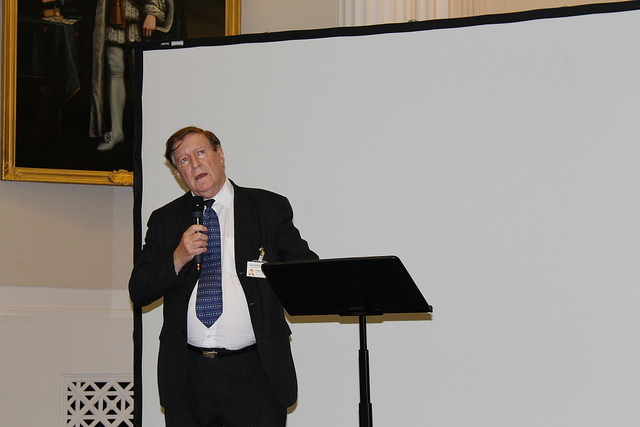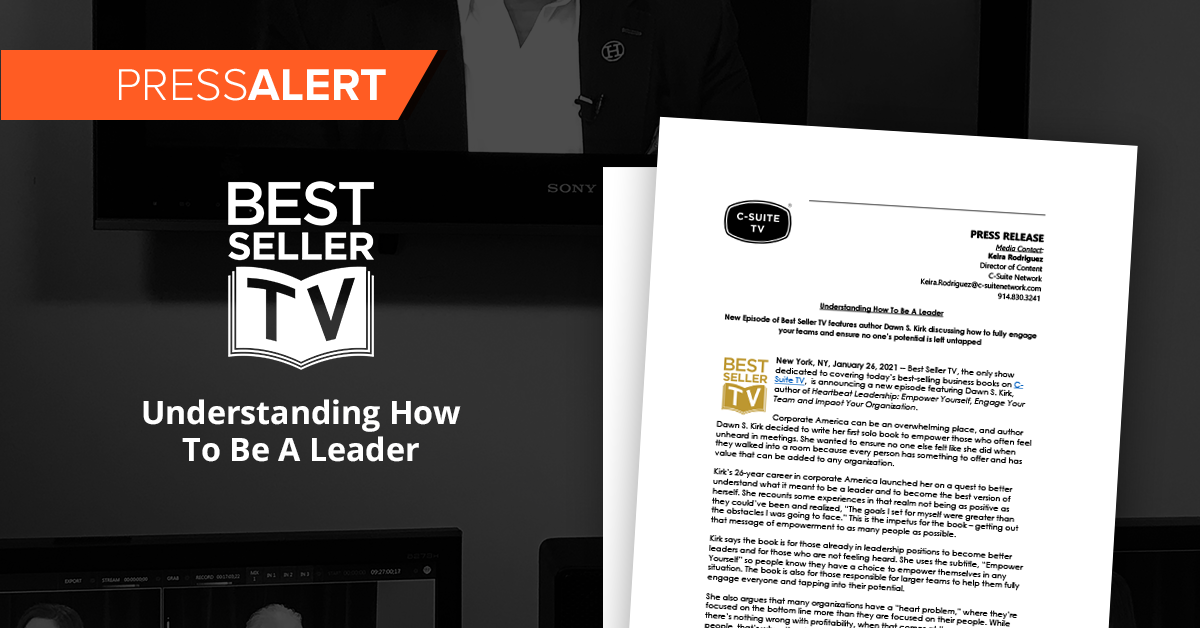
7 Reasons Why Executive Speakers FLOP | Part 1
7 Reasons Why Executive Speakers FLOP | Part 1 https://csuiteold.c-suitenetwork.com/wp-content/uploads/2015/01/10366774496_d3e9775620_z.jpg 640 427 C-Suite Network https://csuiteold.c-suitenetwork.com/wp-content/uploads/2015/01/10366774496_d3e9775620_z.jpgby Mark Sanborn
Few things create a more vivid perception of an executive than his or her speaking ability. The higher execs rise in an organization, the more frequently they are called
upon to address others. Ironically, little or no training is given hapless executives to develop this skill. If they become good at public speaking, it is either a gift of genetics, luck or a combination of both.
Increasingly leaders are realizing their need for skills development that falls outside of what is typically offered by their organizations. That is one reason why executive coaching has become so popular. Often one of the primary areas coaches focus on is communication — both interpersonal and public.
As a professional who makes his living giving speeches and seminars, I’ve sat through hundreds, if not thousands, of executive presentations. More often than not, the speeches I’ve heard businesspeople make were less than memorable. And, far too often, the presentations were painful, not only for the speaker to give, but for the audience to feign interest through.
The majority of executive presenters, even those who flopped dramatically, were well-intentioned. Nobody sets out to destroy his or her credibility with a bad presentation. So why do people fail in spite of noble intentions?
Intention requires technique to be successfully communicated. It doesn’t matter how well you want to hit the golf ball. Only good form and practiced skill allow you to consistently do so. Public speaking is no different.
I am puzzled why so many seem to think that speaking well in front of an audience is a natural skill. Public speaking, like all skills, is developed. The more often one speaks, the better one becomes if — and this is a big if — he or she focuses on eliminating undesirable behaviors and developing needed ones.
The fastest gain that can be made in improving your ability to speak well is to eliminate those things that cause disaster. While I’ve observed great creativity in flopping, there are seven common reasons why executive speakers fail. I’ll explain those reasons and what to do about them.
A disregard for time
History has no record of anyone who gave a speech that was too short, but we’ve all been in audiences when the speaker stopped speaking on what seemed like a different day than he had begun.
This problem — speaking too long or taking more time than allotted — seems to be epidemic among high-level business leaders. Most meeting planners value their job too much to be candid with an executive and tell him that he completely destroyed the agenda by speaking for an hour when he was scheduled to speak for 15 minutes. And no employee is going to complain to the executive’s face about talking way too long.
Being self-employed allows me the luxury of being totally honest: Speaking longer than planned is rude. It suggests to the audience that the speaker and his or her presentation are more important than anyone or anything else on the program. The length of a presentation shouldn’t be a function of title or power, but a function of how long the exec agreed to talk. If you say you need 10 minutes, quit after 10 minutes. If you need more time, negotiate for it in advance. But don’t take the next three speakers’ time because you either don’t pay attention to your watch or you are too arrogant to realize that the high point of the meeting just might not be listening to you speak twice as long as expected.
Start on time and stop on time. Not only will your audience respect you for it, but it will prove that you respect your audience.
Unclear purpose
Here’s the million dollar question of any presentation: What’s the point? Executives who don’t have clear objectives for their presentation usually achieve little. Heaven help you if your objective is “to inform.” Duh? Every speech informs, whether by design or by default. Attempting only to inform is aiming too low.
Why not use the opportunity to motivate, inspire or encourage? Why not take advantage of your chance to share a vision or create camaraderie?
Design your speech the way the pros do. Begin by asking, “At the end of this presentation, what do I want listeners to think, feel and do?” Good presenters speak to the head, the heart and the hands. Challenging people with lots of information of limited practical application is more frustrating than inspiring.
If you can’t clearly identify a worthwhile purpose for the presentation, you probably shouldn’t be making it.
And it doesn’t hurt to begin with an overt statement of purpose: “The reason I’m speaking to you today is…” It may not be clever, but it will significantly increase the odds that you’ll fulfill your purpose if you enlist the audience early on.
What about speeches that someone else writes for you? It is critically important that a speech writer have access to you and your ideas. Even the best speech writer isn’t clairvoyant. Your speech will only be written as well as the input you provide. This is not the time for “hands-off” delegation.
Inadequate preparation
There is no excuse for “winging it.” The best speakers are always — and I mean it literally — prepared for what they say, even if their demeanor suggests otherwise.
That brilliant toe-in-the-sand presenter you heard who came up with the wonderful analogy and spectacular quotes “on the spot” really didn’t. She planned carefully not only what she was going to say, but how she would appear “off the cuff.”
Here’s how to tell if a speaker hasn’t prepared: He doesn’t say anything important. To make best use of your time and the audience’s time, think through and practice what you’ll say.
If you saw a Broadway show where none of the actors had practiced in advance, you would demand your money back.
Too bad audiences don’t get the same privilege.
And please don’t ever begin by saying, “I really haven’t thought about what I’m going to say…” There are no bragging rights to that. If you ever find yourself tempted to make that statement, at least be honest and say, “I’m a goober, and I’m going to waste your time.”
Henri Nouwen, the Catholic mystic of the late 20th century, was once frustrated as he prepared for an important speech. His insight? Live prepared, rather than simply trying to prepare. Maybe this is what Tom Peters was alluding to when he instructed managers to have a “stump speech” with the same three or four most important messages ready to give and give again at every opportunity.
*This article originally appeared on MarkSanborn.com.
 Mark Sanborn, CSP, CPAE, is president of Sanborn & Associates, Inc., an idea studio dedicated to developing leaders in business and in life. Sanborn is an international bestselling author and noted authority on leadership, team building, customer service and change. Follow Mark on Twitter @Mark_Sanborn.
Mark Sanborn, CSP, CPAE, is president of Sanborn & Associates, Inc., an idea studio dedicated to developing leaders in business and in life. Sanborn is an international bestselling author and noted authority on leadership, team building, customer service and change. Follow Mark on Twitter @Mark_Sanborn.




